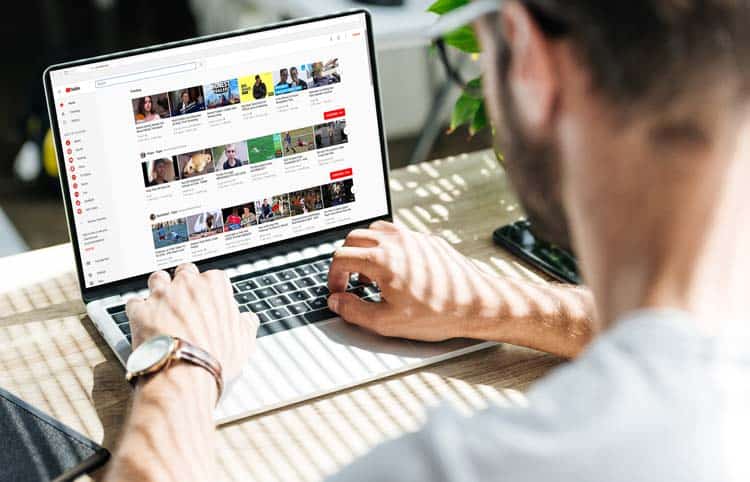The script is written, graphics are designed, music is chosen, filming is complete, and editing is done. Time to hit publish on your shiny new video and watch the views roll in!
And then...crickets.
Video content takes more time and energy than almost any other type. So watching those views sit at a standstill day after day is maddening!
To be successful with video, creators need to take a different approach to most other types of content. So here are some tips you can use to get the most out of your video and start seeing results.
Video Content & Posting
Before you consider how to promote and optimize your video content, you have to create it! Keep these tips in mind when making your next video to start off on the right foot.
#1 Content Tips
Just because a video appears in a search result, that doesn’t mean you’re going to get the view. You need a great thumbnail image to increase the chances that viewers will hit play. As many as 90% of the best performing videos on YouTube have custom thumbnails!
A good thumbnail entices your viewers and makes your video look appealing. If you just use a still frame from the video, you may end up with a blurry or low-rez image. Instead, take a few still photos during the filming process so you’ll have good clear images for your thumbnail. You can also add some text over the image to tease the video content.
Once they’ve hit play, people make up their minds about your video content very quickly. Most lost viewers abandon a video within the first 30 seconds, so you need to make those first seconds amazing. Don’t save the good stuff for later in the video.
A higher retention rate on your own website will help your site’s search rankings. And on YouTube, better retention will mean similarly boosted rankings.
#2 Posting Tips
Whether your videos are part of a YouTube channel or are posted on your own website, it’s important to release them consistently — just like blog posts. Post the same number of videos each week, preferably on the same day. Not only will this make you more reliable in Google’s eyes, but it will help your viewers to know exactly when to check your site for new content.
When you put the video on your website, put it at the top of your page. If your video is far down the page, some of your site visitors will bounce before they ever reach it. Posting it in a prominent position can improve your video’s play rate.
And if your page has more than one video, make sure the one you want to rank is first. Google usually only indexes one video per page, so put your best work in that prominent “rank me!” position.
Subtitles and Transcripts

As many as 83% of online videos are watched without sound. And that number jumps to 92% when videos are watched on mobile.
That’s one of the reasons why subtitles should always be included in your videos. Without them, you’ll lose a huge number of viewers who are trying to watch in a quiet place.
You should also include a video transcript. Some people may want the content but don’t want to spend the time watching a video. A transcript that they can skim will keep them on your site longer, even if you don’t get the video play.
Plus, the transcript will provide more page copy that will be indexed by web crawlers. Those extra instances of your keyword on the page can help to boost your ranking for the search term.
Don’t worry — you don’t have to type out your subtitles and transcripts manually. Use a service like Kapwing to auto-generate your subtitles, and then just check them for accuracy before you upload them.
Tips for YouTube
YouTube is its own animal with specific best practices to follow for visibility and engagement. If you like to cross post your videos to YouTube as well as on your own website, here are some things to keep in mind.
#1 Keyword research
To start, you’ll need to do YouTube keyword research, rather than general keyword research. People search for different things on YouTube than on a search engine. To see what people are looking for, you can type a basic keyword into YouTube’s search field and see a list of topic suggestions. This is an invaluable tool that will provide key insight into common YouTube searches.
You can also use the free chrome extension TubeBuddy to find out what tags your competitors are ranking for. Try to create better content for those tags to snag some of their views. Even if you can’t outrank them, your video may show up in the “suggested videos” feed on the right-hand side of the screen, helping you to get more views.
#2 Add cards and end screens
Cards and end screens can encourage engagement with your YouTube videos as well as promote your other video content.
Add cards throughout your video content on YouTube to get viewers to take an action. Cards can link to your website, other videos, or can ask a question or poll to get audience engagement. You could ask, for example, what kind of content viewers would like to see in the future.
End screens appear in the last seconds of your videos, and they can send viewers to your other videos or show a big “Subscribe” button.
Use these tools to keep your viewers engaged and encourage them to watch more of your helpful videos or make a purchase on your website.
YouTube Search Optimization

Just like videos posted elsewhere, you’ll want to release videos regularly and include an interesting custom thumbnail. And when you upload your video, make sure to fill out the fields entirely, with a focus on your keyword. Start with a keyword-optimised video title. Choose a few applicable tags — including your keyword as one — and choose an appropriate category.
In the description box, write a few hundred words to help YouTube understand the purpose of your video. If you have links or a CTA you want users to see, keep them “above the fold” — that is, before viewers have to click the “See More” button to expand your description.
Upload subtitles and a transcript, too. This additional copy will contribute to your overall word count and ranking optimization. Don’t rely on YouTube’s automatic subtitling. It will have errors that will make your content less helpful to viewers.
Video Sharing Tips
Once your videos are completed and uploaded to your website or YouTube, it’s time to promote them. The most obvious way is to share them on social media, especially Facebook, Pinterest, and LinkedIn. But there are more places you can and should promote your video content.
Send a simple email newsletter out promoting your video. It doesn’t need to be overly complicated — just some enthusiastic text explaining what your new video is about. Don’t forget to explain how the video content will help the viewer! It’s all about them, not about you.
You can also embed your videos in relevant blog posts. This will help your blogs to perform better, AND create a backlink to your video.
Another good option is to share your video on Quora as an answer to a relevant question. The more places you can find viewers, the better!
Give Your Video A Chance!
Well-optimized video content can perform incredibly well, but there is more competition than ever. If you’re going to invest the time and money into video marketing, give your videos the best chance of getting results by following these tips.
Author: Rudy Labordus
Rudy Labordus is an Internationally acclaimed author, marketing strategist and speaker. He has been instrumental in helping launch and develop several multi million dollar businesses around Australia and excels in developing innovative, strategic and creative solutions that produce exceptional results for his clients.

